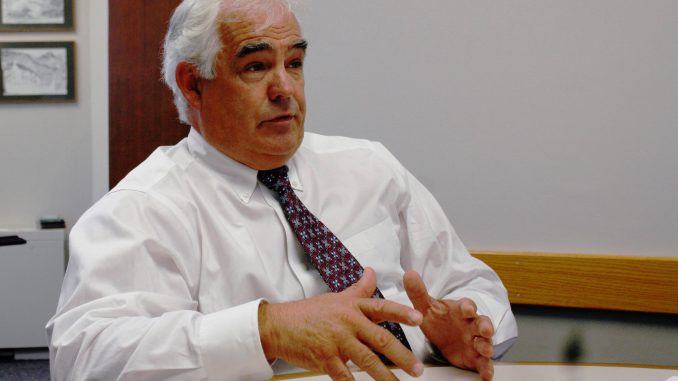
Temple combined two of its academic centers Sept. 1 to consolidate student tutoring and educational resources. Summer Bridge, provided by the Russell Conwell Learning Center, was one of the university’s programs to be replaced or relocated.
Another program, Upward Bound, will relocate, but will remain the same.
A drastic change is coming for Summer Bridge—a program for conditional-acceptance students meant to prepare them for college.
Funding for the three elements of Summer Bridge ended at different times, the final of which was the federally-funded Student Support Services. SSS provided prospective students with intensive academic training during the course of six weeks during the summer and helped students with low standardized test scores acclimate to college life and learn about the many resources available to them.
Students who succeeded academically at the Summer Bridge Program during the summer were admitted to Temple for the fall semester. This past summer marked the last session of SSS for students, as the program is being replaced with the “Temple Option” during the application process.
Senior Vice Provost for Undergraduate Studies Peter Jones said the program held some “real restriction” for students.
“It required students to commute to class at Temple every day,” he said. “We have students who could use the program from Chicago, Washington D.C., and New York. Now they can access Temple through the ‘Temple Option.’”
“Temple Option” gives students the chance to write additional essays to accompany their application to Temple in place of submitting low SAT or ACT scores that could keep them from gaining admission.
Act 101, a second part of the Summer Bridge Program, lost state funding two years ago. The program helped students with academic and financial struggles. When that program ended, attendance to the Summer Bridge Program dropped from 200-250 students to about 100-170 students during the summer.
With funding for both programs ended, Summer Bridge was essentially finished. The third component to Summer Bridge is the Emerging Scholars Program, which provides resources and tutoring for students to use during the school year. ESP is now provided to students through the Center for Student Learning and Success, the university’s all-encompassing tutoring program.
“I think it’ll be a loss for students,” said Kayla Boone, a sophomore speech major. “They’re not going to be prepared or know the resources, and it’ll cause a ripple effect because students are going to help each other.”
Boone said without the Summer Bridge Program, she might not have chosen to attend Temple.
“I chose Summer Bridge as a growing process,” she explained. “How are you going to compensate for that full program?”
Jones said the transition would not lead to a “passive and reactive” situation, where the functions are in place but just wait for the students to realize that they need the program.
“We want to be proactive and strategic,” he said. “We’ll actively seek out students because if we wait, it could really restrict opportunities.”
Students who would have previously qualified for the Summer Bridge Program will still be reached out to and connected to academic coaching and tutoring programs.
“The quality is here for students,” said Jones. “Rather than having students come here and fail, we’re going to reach out and help them.”
Julie Christie can be reached at julie.christie@temple.edu or on Twitter @ChristieJules.


Be the first to comment